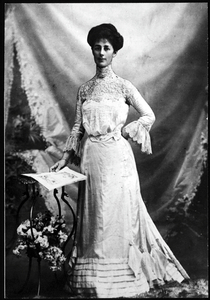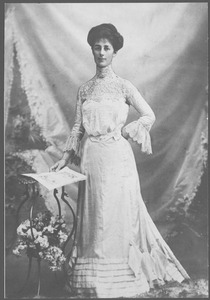Vida Goldstein
Vida Goldstein (1869-1949) led the radical women’s movement in Victoria in 1899-1919. Five times a candidate for federal parliament in 1903-17, she advocated arbitration and conciliation, equal rights and pay, official posts for women and the redistribution of wealth. During World War I she was an uncompromising pacifist. Socialism and Christian ethics were the foundations of her activism. Courtesy Australian Dictionary of Biography
Events
First women's suffrage society
Henrietta Dugdale, Annie Lowe and several other women establish the Victorian Women’s Suffrage Society to campaign for the female vote. Their model is followed by other colonies.
TAGS
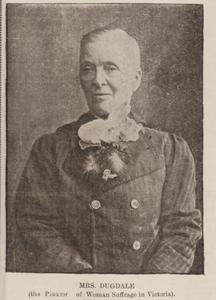
Women vote in federal election
With the passing of The Commonwealth Franchise Act 1902 ‘all persons not under twenty-one years of age whether male or female married or unmarried’ are entitled to vote or stand for election in federal elections. The Act excludes Aboriginal women and men unless they are eligible to vote under state law. On 16 December 1903, women vote for the first time in an Australian federal election, and four women nominate for election. Vida Goldstein (Victoria), and Nellie Martel and Mary Ann Moore Bentley (New South Wales) stand for election to the Senate, and Selina Anderson stands for the seat of Dalley (New South Wales) in the House of Representatives. They are the first women nominated for any national Parliament within the British Empire. Although none is elected, the event is described by The Dawn newspaper as ‘the greatest day that ever dawned for woman in Australia’.
TAGS
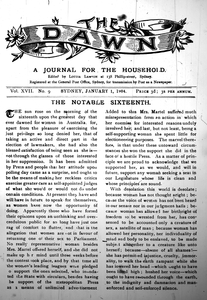
Suffragists oppose military service
Rose Scott, a leading suffragist, writes to Prime Minister Alfred Deakin opposing compulsory military training and service. In 1914, Vida Goldstein forms the Women’s Political Alliance to oppose military conscription, then joins Cecilia Annie John forming the Women’s Peace Army.
TAGS
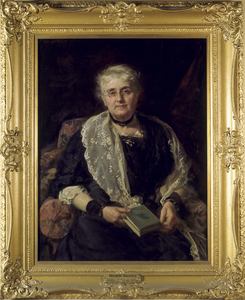
Australian Women’s Peace Army
Vida Goldstein and Cecilia Annie John form the Australian Women’s Peace Army in Melbourne to protest against the First World War.
TAGS
